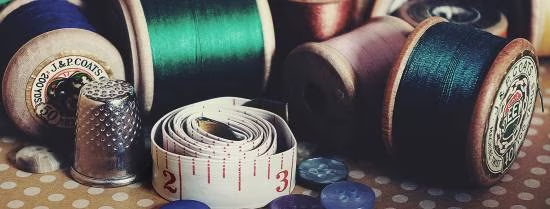
The course Sustainability & fashion behind the scenes was developed at Paris Dauphine University – PSL in 2020 as a result of the research launched within ERASMUS+ programme of the European Union “Re-Frame Fashion”. The first edition of the course was proposed in the Master Marketing & Strategy – Communication track, so that students could reflect on current marketing and strategy discourses and practices in order to sharpen their critical thinking about their future profession.
Students have been invited to look behind the scenes to understand current debates in the fashion industry, involving a diversity of facets of the industry (the six themes of the course): the consumption of clothes, the production of clothes, the design of clothes, the choice of materials, the role and impact of communication, the work environment, here and there.
The main objectives were:
- to develop a detailed understanding of the environmental and societal impact of current practices in the fashion industry, and of the debates that they trigger,
- to discuss with a diversity of actors from the industry,
- to know how to collect and analyze empirical data and theoretical readings to fuel the debate,
- and to foster innovative proposals that can feed a reflection for renewed practices.
The course is interactive and builds on students’ active participation.
As an introduction, students were welcomed at EnsAD by Darja Richter-Widhoff, a fashion designer and teacher at EnsAD and EnaMoMa by PSL. They were invited to bring a garment that they wanted to dispose, to raise a group discussion and identify the diversity of questions that would be tackled during the course.
Then, for the next sessions, groups of students were in charge of presenting one of the six themes as well as one debate associated with it, using empirical and theoretical readings provided by their professors and collecting additional information. The documents compiled by the pedagogical team included academic papers, newspaper articles, references to chapters and books, reports, online courses, notes from field interviews, and links to audio and video sources. Some time was dedicated to group tutoring to help students work on their assignments.
In situ observations have also been at the heart of the teaching methods. During the whole course, students were invited to write a logbook to reflect on key learnings for their personal and professional life. They were also encouraged to engage with industry professionals in order to further their understanding of current debates. They first met with Aurélia Wolff, the founder of WHOLE, who came to share her experience and vision as an expert of natural dyeing. They also enjoyed a full-day visit of the factories of Le Coq Sportif and partner companies in Romilly sur Seine and Troyes (France). It was a fantastic occasion to learn about the productive and social realities of Made in France and understand the impact of key steps as knitting and dyeing. Students were also invited to participate to a challenge proposed by the company, to reflect on the communication of Le Coq Sportif about sustainability.
The assessment of the course is based on the two group works (theme presentation and challenge proposal) as well as on an individual report of 3 to 5-pages, to reflect about key learnings from the course, as a consumer, as a citizen and as an industry professional.
Unfortunately, the one-week studytrip in the North of France, Belgium and Netherlands that was planned to enrich in situ observations had to be cancelled due to the COVID-19 pandemic. Visits were planned at Plateau fertile in France, Libeco and Debruyne in Belgium and Denim city in the Netherlands. The team had also planned two half-days for students to observe both in Lille and Amsterdam how sustainable brands and places were communicating, and a common day with the Heritage & Fashion course.
Hopefully, the course will include again such enriching visits for the next editions. For 2020-2021, the course is now included in three curriculum: it is renewed in the Master Marketing & Strategy but adapted to two different tracks, Communication and Luxury, and proposed in the new Master Fashion & Materials of EnaMoMa by PSL.



